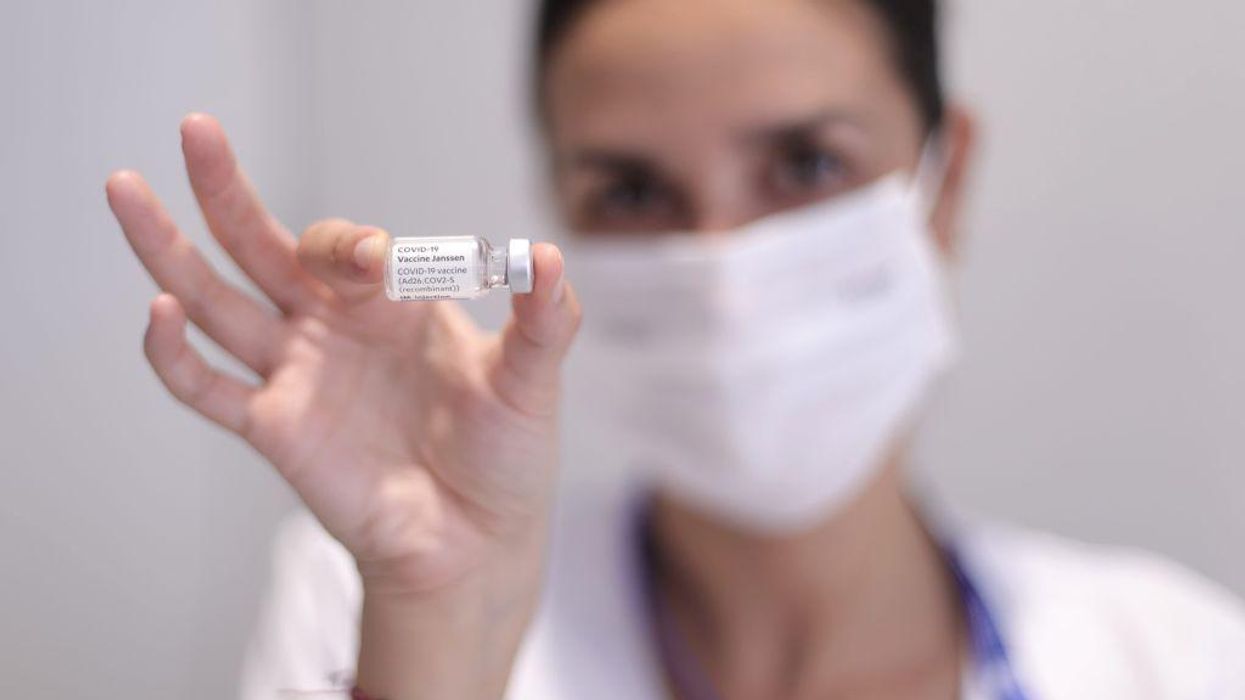
Eduardo Parra/Europa Press via Getty Images

The Food and Drug Administration will soon announce a new warning about the Johnson & Johnson coronavirus vaccine, linking the shot to increased risk of a rare neurological condition known as Guillain-Barré syndrome, which can cause permanent nerve damage.
Both the Washington Post and the New York Times reported Monday that about 100 suspected cases of Guillain-Barré syndrome have been detected among recipients of Johnson & Johnson's COVID-19 vaccine. The cases were reported about two weeks after vaccination and were mostly among men age 50 and older, according to the Centers for Disease Control and Prevention's preliminary findings.
For context, the CDC says 12.8 million doses of Johnson & Johnson's vaccine have been administered. The risk of developing the disease is low, but still the data indicates it is three to five times higher for those who received the Johnson & Johnson vaccine than the general population. So far, there is no evidence linking the Pfizer-BioNTech and Moderna vaccines to Guillain-Barré cases.
Guillain-Barré syndrome is a rare neurological disorder in which the body's immune system attacks part of its peripheral nervous system by mistake. The causes of the condition are still unknown, but according to the National Institute of Neurological Disorders and Stroke, when an immune attack is initiated to fight an infection, some chemicals on infecting bacteria and viruses resemble those on nerve cells. The body's immune cells might become confused and attack the nerve cells in addition to the infection.
Symptoms can range from mild cases of weakness to severe cases of paralysis. Each year, an estimated 3,000 to 6,000 people will develop the disease in the United States. Most people recover, even from the severe cases, but rarely some may have permanent nerve damage, which could lead to weakness. People over age 50 are at the greatest risk.
The Biden administration is expected to make an announcement about the new warning as early as Tuesday. Officials will emphasize that the benefits of vaccination against COVID-19 strongly outweigh the risk and that the Johnson & Johnson vaccine is safe for the vast majority of people.
Still, the new warning is unlikely to instill public confidence in a vaccine that has already faced intense public scrutiny. The benefit of the Johnson & Johnson vaccine compared to its competitors from Pfizer and Moderna is that it only requires one dose, not two, meaning more people could be vaccinated against COIVD-19 quickly with widespread use. However, confidence in Johnson & Johnson's vaccine plummeted last April after the FDA and CDC called for an immediate pause in its use because of concerns about six women who developed blood clotting issues after taking the vaccine. The suspension was lifted after government agencies conducted an extensive safety review, though a warning label was added to the vaccine.
The mRNA vaccines are not without their own side effects. Late last month, the FDA added a warning to the Pfizer and Moderna coronavirus vaccines about an increased risk of heart inflammation following vaccination mostly found in young adult males.
Vaccine hesitancy prevented the Biden administration from meeting its goal of having 70% of U.S. adults vaccinated by the Fourth of July. Currently, about 47% of adults in the U.S. are fully vaccinated. Public health experts say 70%-90% of adults need to be vaccinated to beat the pandemic.
President Joe Biden said last week that his administration will start a door-to-door effort to encourage more Americans to get vaccinated.
"Now we need to go to community by community, neighborhood by neighborhood, and often times door to door— literally knocking on doors to get help to the remaining people, protected from the virus," Biden said.
The CDC and the Department of Health and Human Services, as well as various other public health organizations, continue to strongly recommend that everyone 12 and older get vaccinated because the risks of disease and death from COVID-19 are far greater than potential side effects from the vaccines.